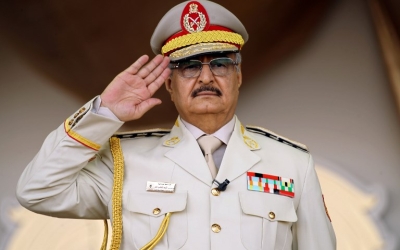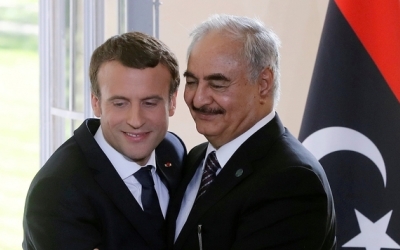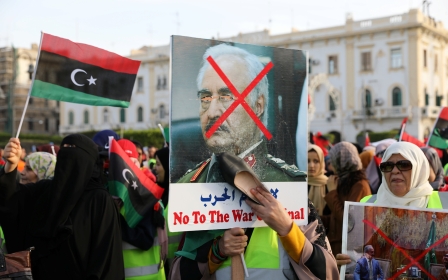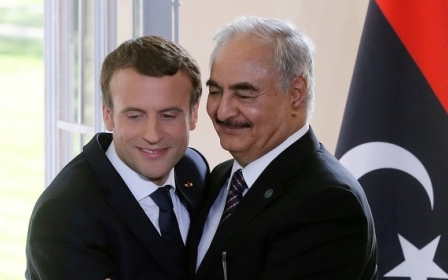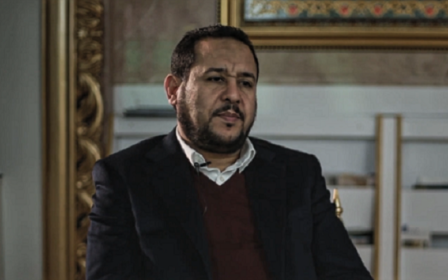Libyan PM Sarraj accuses France of supporting 'dictator' Haftar
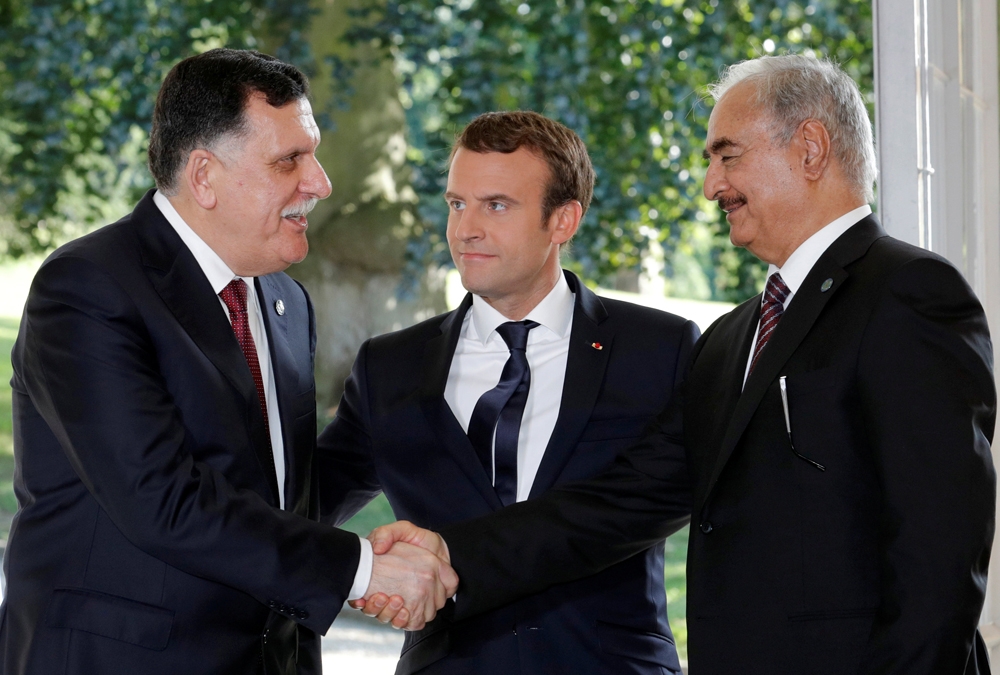
Fayez al-Sarraj, the head of Libya's internationally recognised government in Tripoli, has accused France on Wednesday of supporting his rival Khalifa Haftar, whom he described as a "dictator".
The comments from Sarraj to the Liberation and Le Monde newspapers in France are his harshest criticism yet of Paris, which has long been suspected of offering backing to Haftar, a former army field marshal based in eastern Libya.
Haftar, head of the self-styled Libyan National Army (LNA), has gradually expanded his territorial control and launched an offensive on 4 April on Tripoli where Sarraj's government is based.
On Tuesday, Middle East Eye reported that 13 armed men with French diplomatic passports, who were detained in Tunisia last week while crossing from Libya, were providing logistical support to Haftar in his offensive on the capital.
Sarraj's forces were reported on Tuesday to have pushed back troops loyal to Haftar to more than 60km southwest of the city.
"We are surprised that France does not support our government that is democratic, but supports a dictator," Sarraj told the newspapers in comments published in French on Wednesday.
"When [French president] Emmanuel Macron called me, I warned him that public opinion was against France. We don't want Libyans to hate France. France still has a positive and important role to play," he said.
Speaking to Le Monde on Monday, Sarraj said France was partly to blame for Haftar's offensive on Tripoli, which has led to 264 deaths and over 1,200 wounded.
"The disproportional support from France towards Haftar is what made him decide to take action and abandon the political process," he said.
French denial
France has a long history of covert military operations in Libya.
The presence of French special forces in Benghazi, which Haftar was trying at the time to wrest from groups of Islamist fighters loyal to Tripoli, was revealed when a helicopter on a surveillance mission crashed, killing three French soldiers in July 2016.
A month later, the French were reported to have withdrawn from the city in eastern Libya. But in September that year, MEE revealed that British, French and US air-traffic controllers in Benghazi's Benina airport were helping Emirati pilots bomb Islamist positions in the city.
In May last year, France invited Haftar to a conference of the various Libyan factions in Paris which helped legitimise him.
In January, Italy's Deputy Prime Minister Matteo Salvini of the far-right League party accused France of exploiting the unrest in Libya to benefit French oil company Total, which competes with Italy's ENI in the development of energy assets in the area.
Haftar was also hospitalised in Paris in April 2018.
France has denied the accusations of supporting Haftar, saying it has contact with all the actors in war-ravaged Libya where a complex mosaic of militias and political factions are competing for advantage.
But French diplomatic sources have raised concern about Sarraj's apparent lack of influence and his alleged dependence on local militias.
He is backed by Qatar and Turkey, analysts say.
Burnt-out cars and dead fighters
As Sarraj's forces continued to push Haftar's troops back on Tuesday, a Reuters team in Aziziya, about 53km south of Tripoli, said the town was fully under the control of the Tripoli forces, with shops reopening after days of fighting.
But fighting still raged in some southern suburbs on Tuesday, with shelling heard throughout the day even in central Tripoli, residents said.
The Reuters team driving south of Aziziya through villages on the road to Hira saw several burnt-out cars belonging to Haftar's forces and five dead fighters.
The front remains fluid, however, with both sides gaining and losing territory within days or even hours.
If a ceasefire is called as demanded by the United Nations, the LNA would have still gained a considerable amount of territory.
Shooting at detention facility
The North African country has been in a state of chaos since long-time ruler Muammar Gaddafi was toppled in 2011 with western intervention.
Libya is also the main departure point for migrants from elsewhere in Africa trying to reach Europe across the Mediterranean, a big concern for European Union nations.
There have been reports that migrants in a detention facility in Qasr Ben Ghashir district, which has been fought over since the start of the offensive, have been seriously wounded in random shooting, the UN migration agency, IOM, said on Tuesday. It gave no more details.
Some 3,600 migrants remain trapped in detention centres near the frontline, the UN said in a statement.
Last week, Haftar also controversially won overt backing from US President Donald Trump.
The White House said Trump "recognised Field Marshal Haftar's significant role in fighting terrorism and securing Libya's oil resources" during a call between the men.
That came a day after Russia and the United States opposed a British bid at the UN Security Council, backed by France and Germany, to demand a ceasefire in Libya.
Middle East Eye propose une couverture et une analyse indépendantes et incomparables du Moyen-Orient, de l’Afrique du Nord et d’autres régions du monde. Pour en savoir plus sur la reprise de ce contenu et les frais qui s’appliquent, veuillez remplir ce formulaire [en anglais]. Pour en savoir plus sur MEE, cliquez ici [en anglais].


